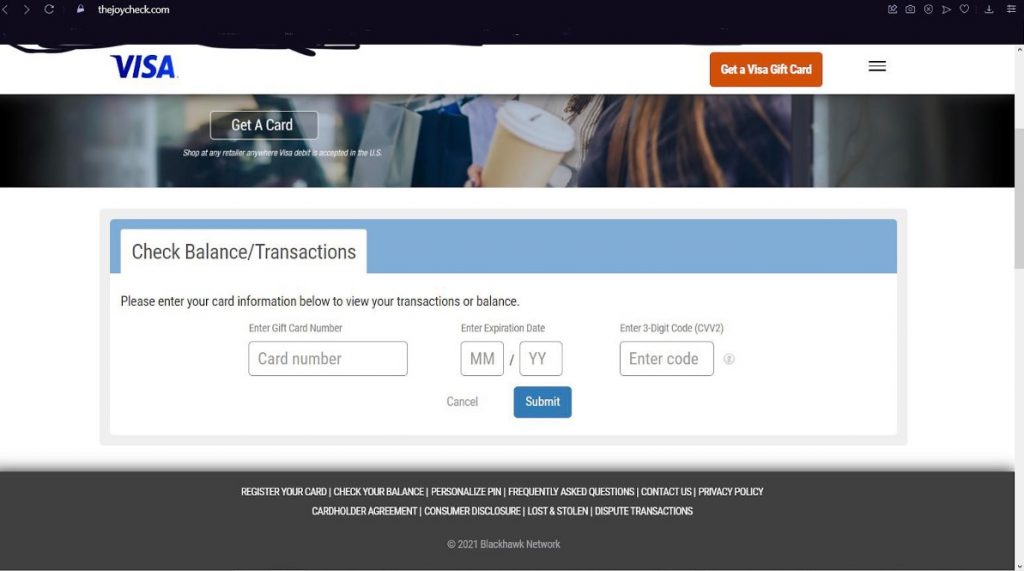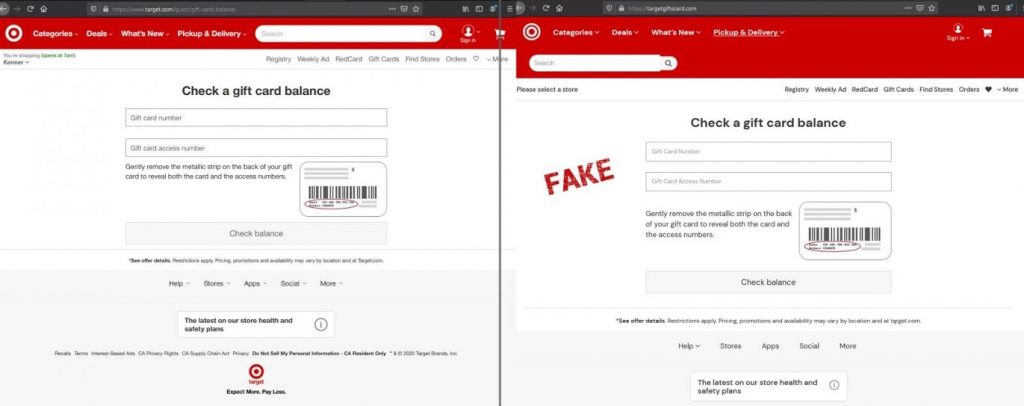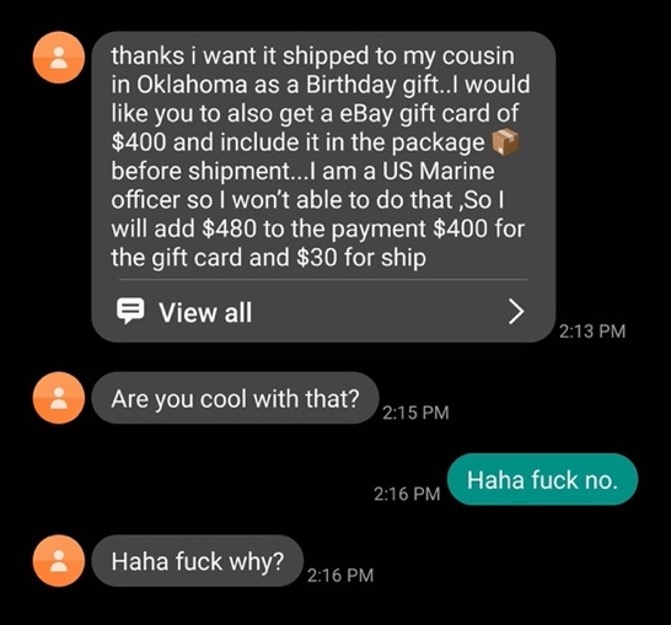It’s exciting to give and receive gift cards, isn’t it? They’re always a convenient way to show thanks to others. However, scammers also find it convenient to use the allure of gift cards to trick you. They benefit A LOT from gift card scams — according to the Federal Trade Commission (FTC), the total loss to gift card payment scams recorded from January to September 2021 was $148 million! Stunningly high! Read on to see if you could detect any of these common gift card scams and learn how to spot them:
3 Common Gift Card Scams
1. Fake Balance Checking Websites
Many people will check the balance of their gift cards online, and scammers try to create fake websites to steal your card’s details. It can be hard to tell these fake websites apart from genuine ones, and if you fall for one of them, you could end up submitting credentials like the gift card number, expiration date, and even its 3-digit code. What does that mean? Well, scammers can record all the data and spend the money on the gift card without your knowledge!

How to Protect Yourself
- Pay close attention to the domain/web address of the balance checking website. Sometimes a fake URL and the legitimate one may look extremely alike. For example, as BleepingComputer reported, one fake Target gift card balance checking site’s URL is targetgiftscard[.]com, while the real one is target[.]com.

Source: BleepingComputer
- Use only the official websites to check the balance of your gift cards.
- Check for typos and grammatical mistakes or any unnatural wordings on the page.
- Use Trend Micro ScamCheck to check if a website is secure (It’s free!).

ScamCheck is an all-in-one browser extension for detecting scams, phishing attacks, malware, and dangerous links – and it’s FREE!
After you’ve pinned ScamCheck, it will block dangerous sites automatically! It is now available on Safari, Google Chrome, and Microsoft Edge.
Check out this page for more information on ScamCheck.
2. Amazon / PayPal Gift Card Scams (Giveaway, Lottery, and Sweepstakes)
“Win a $1,000 Amazon gift card!” “Congratulations! Win a $750 PayPal Prepaid Card Christmas Survey!” Do any of these sound familiar to you? Impersonating famous brands, scammers spread fake giveaway and lottery campaigns on social media, emails, or messaging apps, luring you into clicking on phishing links or asking you to reveal your sensitive data:
How to Protect Yourself
- Double-check the sender’s email address.
- Free gifts or prizes are always a major red flag.
- Reach out to the company’s customer service directly for help and support.
- NEVER click links or attachments from unknown sources — you can use Trend Micro ScamCheck to detect scams with ease.
3. Gift Card Payment Scams Initiated via Phone Scams
First things first: any strange requests for gift cards are scams! Again, posing as the government or famous companies, scammers reach out to you via phone and instruct you, using various excuses, to go to local stores and buy them gift cards.
For example, when you are buying things online, the “seller” may insist payments are made with gift cards. Or, ask you to do them a favor and buy a gift card and send it to someone else.

They may also pretend to be from the Internal Revenue Service (IRS), telling you that you owe taxes and that you have to pay by gift card. In other cases, they impersonate the Social Security Administration (SSA), threatening that you’re under investigation and that you need to buy gift cards to save yourself from being arrested. However, there are many variations on this scam, these are just two examples.
No matter what, they will ask you to give them the numbers (including PIN) on the gift card. Don’t fall for it!
How to Protect Yourself
- Requests for gift cards are always a major red flag!
- Never reveal the credentials printed on your gift card.
- Use trusted payment methods when shopping online. If the seller insists on payment methods other than the ones listed on the shopping site or keeps trying to take you away from the online marketplace, be careful!
- Add an extra layer of protection to your device with Trend Micro Maximum Security! Its Web Threat Protection, Ransomware Protection, Anti-phishing, and Anti-spam Protection can help you combat scams and cyberattacks.
Click the button below to give it a try:
As ever, if you’ve found this article an interesting and/or helpful read, please do SHARE it with friends and family to help keep the online community secure and protected.


